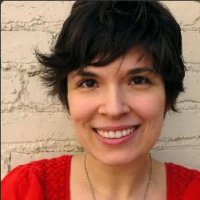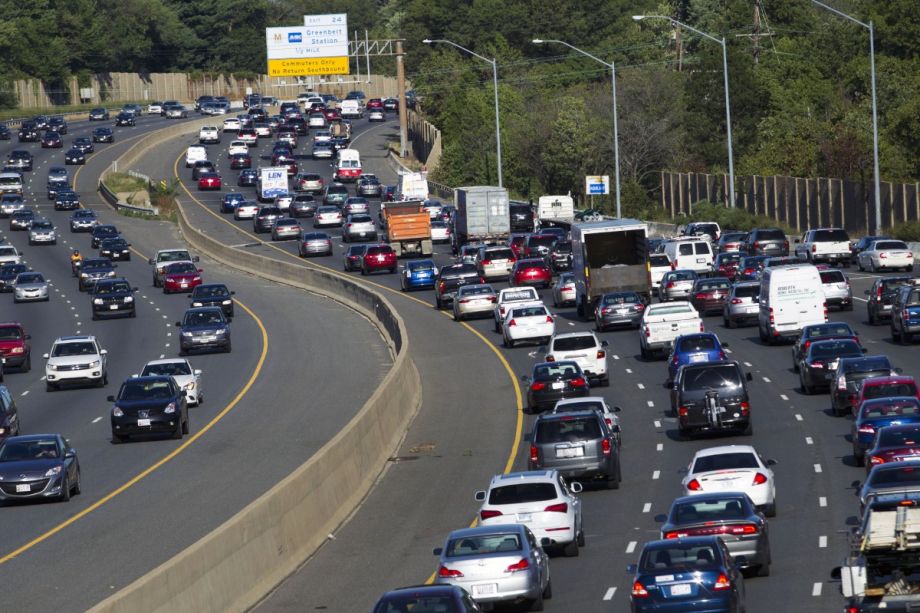A team of business leaders in the Washington, D.C., metro area is calling for more tolls stretching from as far south as Richmond up to Baltimore, arguing that the tolls are needed to reduce congestion on some of the country’s busiest highways.
The Greater Washington Partnership is calling for existing toll lanes in Virginia and Maryland to be “built into a complete regional network the group believes could ease the traffic jams that waste time and money across the region every day,” radio station WTOP reports.
Parts of I-95 and the Beltway already have tolls; the companies behind the Greater Washington Partnership say that having the same rules in Maryland would allow for a more seamless connection.
Anyone who’s driven in Beltway rush-hour traffic can attest to the misery of the experience. A 2017 study found that one stretch of I-95 in Northern Virginia is the worst traffic “hot spot” in the country. Although the studies, by transportation analytics company Inrix, have come under fire for flawed methodology, the pain I-95 drivers experience is real. And it’s only getting worse: Roadway congestion is projected to increase 50 percent by 2040.
New tolls should follow six principles, the partnership said in a position paper released Wednesday. These principles are:
- Tolling should improve the transportation system, not just the tolled facility.
- Tolling should be coordinated regionally.
- Decisionmakers should prioritize “providing enhanced connectivity to the greatest number of people,” not generating the most revenue or moving more vehicles.
- Consumers of all income levels should benefit from tolls, even those who cannot afford the tolls.
- Toll revenue should be invested in public transportation.
- Public agencies should “conduct robust and broad public engagement to develop goals, performance metrics and public benefit assessments for each tolling project.”
The paper says the tolls are necessary to offset the economic costs of congestion, which are estimated (by the notorious Texas Transportation Institute, to be fair) at around $1,100 for every Baltimore commuter and $1,800 for D.C. commuters yearly.
The paper doesn’t specifically call for new tolls, but supports tolls that are already planned and under construction, such as Maryland Gov. Larry Hogan’s $9-billion initiative to widen (and toll) major highways around D.C. and Baltimore. When the plan was proposed in fall 2017, Hogan said that the “massive, unprecedented projects…will be absolutely transformative, and they will help Maryland citizens go about their daily lives in a more efficient and safer manner.” (Pro-urbanist organizations like the Coalition for Smarter Growth blasted the plan as a “highways-first” approach.) If the plan is enacted, nearly the entire Beltway around Washington, D.C., will contain toll lanes.
Virginia’s Department of Transportation also added high-occupancy tolling on busy I-66 in December 2017. The tolls, which fluctuate in price during peak hours, can spike to $40 each way during the morning rush. Virginia legislators are weighing changes that would limit the impact of the tolls on commuters, but meanwhile, the tolls have leveled out at around $11 on average, and trip times have increased.
The Greater Washington Partnership was founded by sports team owner Ted Leonsis, Russ Ramsey of Ramsey Asset Management and Peter Scher of JP Morgan Chase, and includes company leaders from Capital One, Dominion Power, Exelon, the Carlyle Group, Under Armour, Washington Gas and other major employers.

Rachel Kaufman is Next City's senior editor, responsible for our daily journalism. She was a longtime Next City freelance writer and editor before coming on staff full-time. She has covered transportation, sustainability, science and tech. Her writing has appeared in Inc., National Geographic News, Scientific American and other outlets.
Follow Rachel .(JavaScript must be enabled to view this email address)








